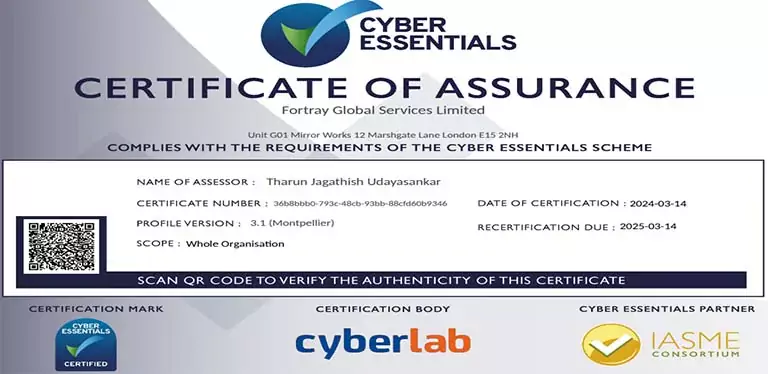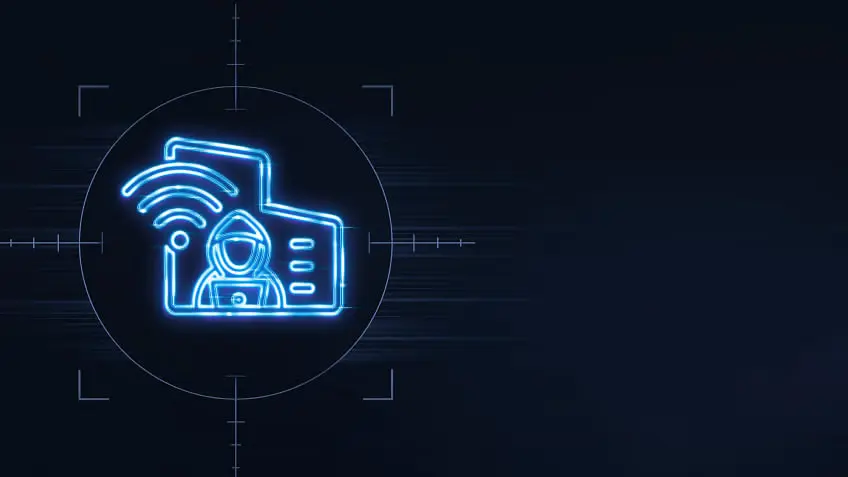- Cybersecurity roles are among the most sought-after jobs in the UK due to increasing digital threats.
- The average salary for cybersecurity professionals in the UK ranges from £35,000 to £150,000, depending on the role and experience.
- Cybersecurity careers offer immense growth potential and job security in an ever-evolving digital landscape.
The UK cybersecurity market, valued at over £10 billion in 2024, is growing exponentially, driven by the rise in cyberattacks and stringent regulations. This surge has created a wealth of career opportunities for tech enthusiasts eager to safeguard businesses and individuals against malicious activities.
This article delves into the top three cybersecurity jobs in the UK, offering insights into their responsibilities, salaries, and required skills, while also shedding light on how Fortray can help you excel in this dynamic field.
Top Cybersecurity Job #1: Cybersecurity Analyst
Overview:
Cybersecurity analysts are the first line of defense against cyber threats, responsible for monitoring networks, analyzing vulnerabilities, and implementing security measures to protect sensitive data.
Key Responsibilities:
- Conducting risk assessments and identifying potential threats.
- Monitoring systems for suspicious activity.
- Developing and maintaining firewalls, intrusion detection systems, and anti-virus software.
Salary Insights:
The average salary for a cybersecurity analyst in the UK ranges from £35,000 to £55,000, with experienced professionals earning upwards of £65,000.
In-Demand Skills:
- Proficiency in security tools like SIEM (Security Information and Event Management).
- Strong analytical and problem-solving abilities.
- Knowledge of regulatory standards like GDPR and ISO 27001.
Top Cybersecurity Job #2: Ethical Hacker (Penetration Tester)
Overview:
Also known as white-hat hackers, ethical hackers simulate cyberattacks to identify vulnerabilities in an organization’s systems, helping to fortify defenses before real attackers strike.
Key Responsibilities:
- Conducting penetration tests on networks, applications, and hardware.
- Reporting vulnerabilities and providing actionable recommendations.
- Keeping abreast of the latest hacking techniques and tools.
Salary Insights:
Ethical hackers earn between £50,000 and £90,000 in the UK, with highly experienced professionals commanding salaries exceeding £100,000.
In-Demand Skills:
- Expertise in coding languages like Python and Java.
- Certification in CEH (Certified Ethical Hacker) or OSCP (Offensive Security Certified Professional).
- Advanced knowledge of hacking tools and techniques.
Market Insights:
Ethical hacking is one of the fastest-growing cybersecurity domains, with UK businesses conducting 30% more penetration tests in 2023 than the previous year.
Top Cybersecurity Job #3: Chief Information Security Officer (CISO)
Overview:
As the top executive responsible for an organization’s cybersecurity strategy, the CISO plays a pivotal role in ensuring data protection and compliance across all operations.
Key Responsibilities:
- Developing and overseeing cybersecurity policies and frameworks.
- Managing incident response and recovery plans.
- Advising the board on emerging cyber threats and solutions.
Salary Insights:
CISOs are among the highest-paid cybersecurity professionals in the UK, with salaries ranging from £100,000 to £150,000, depending on the organization’s size and industry.
In-Demand Skills:
- Leadership and strategic planning abilities.
- Deep understanding of cybersecurity technologies and regulations.
- Experience in risk management and business continuity planning.
Future Prospects:
As cyber threats become more sophisticated, the demand for CISOs is expected to grow by 22% by 2026, according to a recent Cybersecurity Ventures report.
Future Trends in Cybersecurity Careers
The cybersecurity landscape is evolving rapidly, with emerging technologies reshaping career paths:
- AI-Powered Cybersecurity: Professionals with expertise in AI-driven tools will be highly sought after.
- Cloud Security Specialists: As businesses migrate to cloud platforms, the need for cloud security experts is surging.
- IoT Security Analysts: The proliferation of IoT devices has created new vulnerabilities, necessitating dedicated roles to address them.
How to Build a Career in Cybersecurity with Fortray
Breaking into the cybersecurity field requires more than technical skills; it demands a blend of hands-on experience and industry-recognized certifications. That’s where Fortray comes in.
At Fortray, we offer comprehensive cybersecurity programs tailored to equip you with the expertise needed to excel in roles like cybersecurity analyst, ethical hacker, and CISO. Our training includes:
- Interactive Labs: Gain real-world experience through simulated cyberattack scenarios.
- Professional Certifications: Prepare for globally recognized credentials such as CISSP, CEH, and CompTIA Security+.
- Career Support: Receive personalized guidance to secure top cybersecurity positions in the UK.
With Fortray, you’re not just learning; you’re building a future-proof career.
Conclusion
The demand for cybersecurity professionals in the UK is at an all-time high, offering lucrative opportunities for those with the right skills and qualifications. Whether you’re starting as a cybersecurity analyst, mastering the art of ethical hacking, or aiming for a CISO role, the field promises growth, job security, and financial rewards.
Take the first step towards a thriving cybersecurity career today. Join Fortray’s cybersecurity programs and become the expert the industry needs. Your future in cybersecurity starts here.








